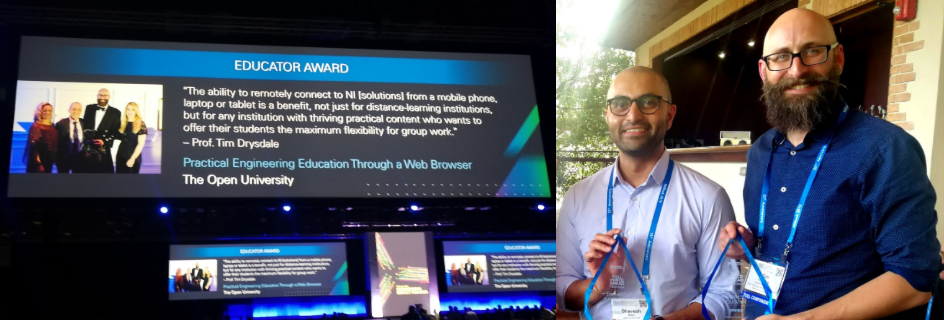Post date:
Professor Drysdale received the National Instruments Global Engineering Impact Award for Education jointly with his previous employer, the Open University (OU), for his work developing the openEngineering laboratory, which enables the practical element of engineering subjects to be taught remotely.
Professor Drysdale’s win in the global category of the award comes after he topped the European, Middle East and Asia group in November last year.
Classrooms of the future
Remote laboratories are a key part of the near-future of ‘blended learning’ which will characterise the student experience not only at distance learning institutions like the OU, but also on traditional campuses like the University of Edinburgh. Blended learning describes the style of education which allows students to learn flexibly through digital and online means, alongside traditional face-to-face methods of teaching.
Being able to conduct the practical element of engineering teaching from a mobile phone, laptop or tablet offers real benefits "for any institution with thriving practical content who want to offer their students the maximum flexibility for group work", according to Professor Drysdale.
Collaboration opportunities
Professor Drysdale, who is Chair in Technology Enhanced Science Education in the School, is now working with colleagues at Edinburgh and other universities to develop a common vision and software infrastructure for integrating non-traditional practical work – including remote, virtual and simulated laboratories – into STEM teaching.
Professor Drysdale would be delighted to hear from further colleagues with potential interests in these areas.



